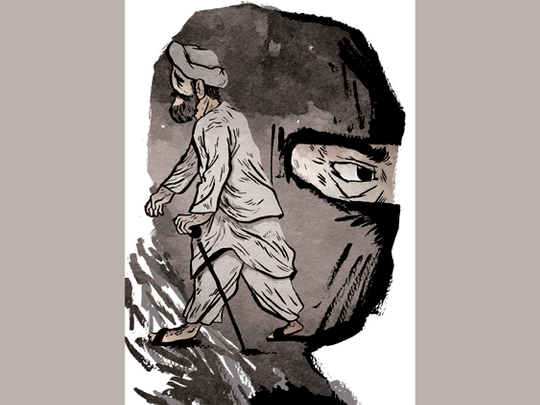
The Arch and the Butterfly
By Mohammed Achaari, translated by Aida Bamia, Bloomsbury Qatar Foundation Publishing, 320 pages, £12.99
What would a father do when his only son dies in the rugged terrain of Kandahar, Afghanistan, as a jihadist and the intimation of his death comes in the form of a one-sentence letter? Grieve and mourn for the irreparable loss? But Yousuf Al Firsiwi does not beat his chest in mourning, pull his hair out, blame himself and his wife for the death of their bright and intelligent boy studying engineering in Paris. Instead, Yousuf embarks on a metaphysical journey to discover the lost soul and how his well-behaved son Yacine turned into an extremist. Traversing the path his son took, Yousuf dwells on his profession as a journalist, his leftist ideology, friendships and dalliances. The final stop on the route of his philosophical pursuit is a meeting with his dead son. Or is it?
Yousuf’s father, Mohammad, was of rural Moroccan stock who somehow made it to Germany, married a German Christian, Diotima, made his money and returned to Marrakech. He had this “worm” in him, as Yousuf narrates, that forced his father and blue-eyed mother to return to Morocco. The enterprising Mohammad established his hotel and tourism businesses near the Roman ruins of Walili. (In fact, Yousuf’s mother’s grandfather was one of the German prisoners of war who helped in the excavation of the statue of Bacchus of Walili.) Their joy turned into a tragedy after Diotima was found dead, her head blown off with a gun. Was it a murder or suicide? Yousuf never found out, and he always doubted his father’s version about how her end came about. Misfortune soon followed: Mohammad went bankrupt and was accused of stealing the Roman statue to pay off his creditors. In his autumn years, he became a tourist guide, taking the mostly German tourists to the places he once owned.
Yousuf, however, is bereft of emotions. So, when his wife Bahia tells him about the doctor’s report that says she is fertile and that they can have another child to fill the void left by Yacine’s death, their marriage collapses. Bahia marries his friend and gives birth to a daughter.
Yousuf, who once toyed with the idea of atheism and was jailed for being a member of a radical leftist organisation, does not give up on meeting with Yacine or the people who could have been his friends or those who brainwashed him into following the path of extremism. Did he change in France or Morocco? At the local mosque or at university? He tries to extract these answers from Yacine’s spirit, who pops up by his side either during or after some distressing events in his life. At times, Yacine taunts him about his personal life and the trials and tribulations that he is going through. Yousuf is not bothered about being the butt of all jokes. He is thinking about the sender of the letter with that one sentence: “Rejoice, Abu Yacine. God has honoured you with your son’s martyrdom.” Does he meet him? Or is Yacine Essam? And who is the person who detonates the bomb as Yousuf approaches him in the hope of finding the last answer to his question? As for the “Arch” and the “Butterfly”, they are just buildings — pieces of architecture. Possibly, the essence of the soul is perception; sometimes it can be a mirage.
Written in a first-person narrative, “The Arch and The Butterfly” encapsulates the mysteries of life, beliefs and death. Mohammed Achaari draws in the reader with his lucid prose and simple syntax and captures the imagination of the reader with a sprinkling of metaphors and hyperboles. This is a book that is worth reading. No wonder it won the 2011 International Prize for Arabic Fiction.








